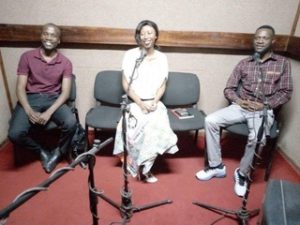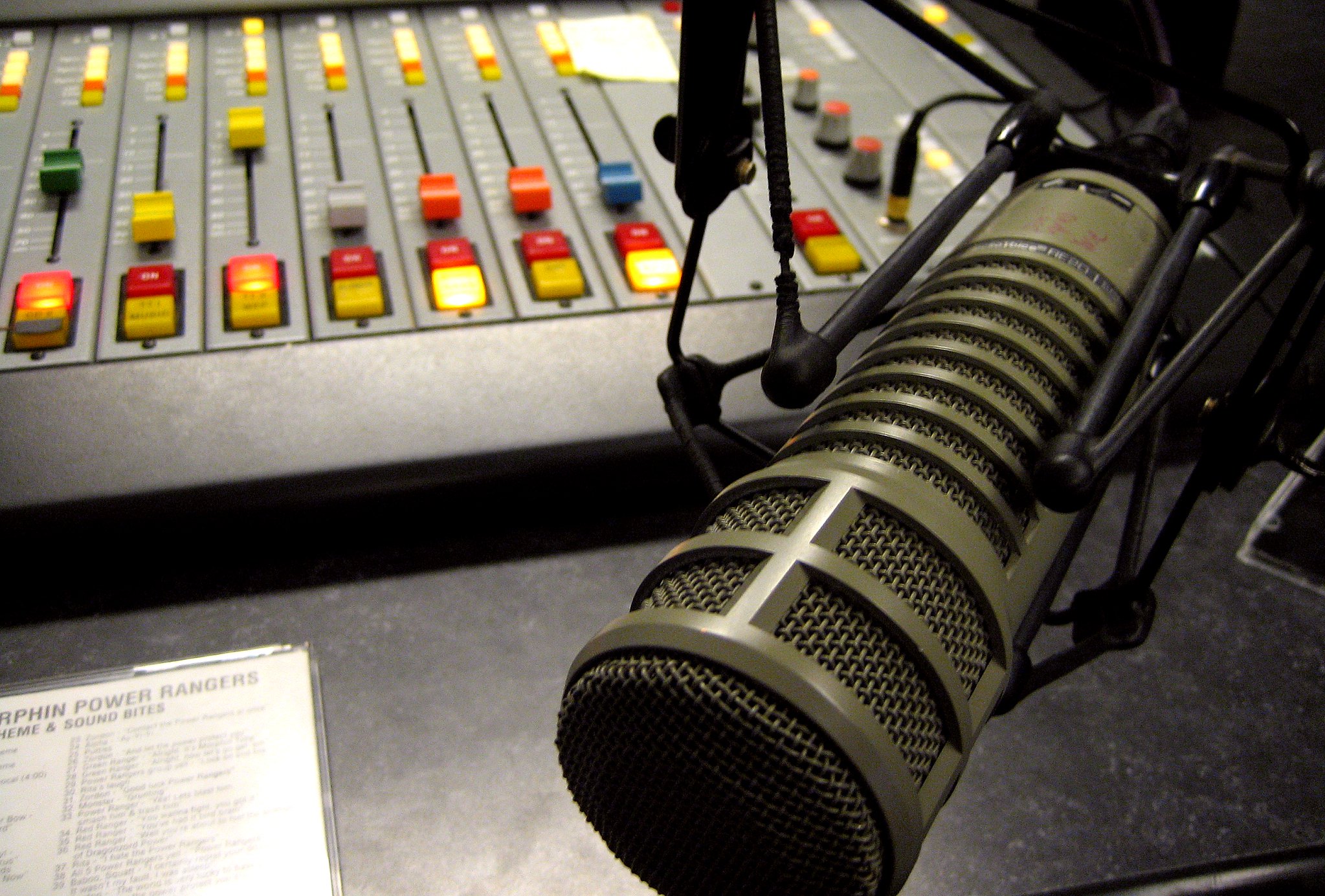By Mary Myers, Nicola Harford, and Martin Ssemakula
Throughout sub-Saharan Africa, radio remains a dominant source of news and information for a vast majority of people. These media outlets are a lifeline for citizens during a public health crisis. They provide vital information on how to stay healthy and how to access critical services. They also hold the government to account, ensuring promises are kept and funds to support response efforts are used appropriately.
The dire economic effects of the coronavirus pose an existential threat to media everywhere—some say it could even trigger a ‘media extinction event.’ Even at the best of times, ensuring the viability of local radio stations in Africa is a balancing act between achieving financial sustainability, editorial independence, and serving the public interest. Many struggle to achieve this balance, and now they are having to deal with a disruption that imperils both their news gathering capabilities and their business models.
As part of a recent research project on radio financial sustainability in Africa, we profiled eight small, independent radio stations in Uganda and Zambia. We decided to get back in touch with them to see how they are now coping amid the pandemic. We spoke to the following radio stations in Uganda: Voice of Kigezi, Radio Tembo, Mama FM, and Speak FM; and in Zambia: Phoenix FM, Radio Icengelo, Breeze FM, and Radio Mano. Through interviews with station staff, this post provides a snapshot of how local radio stations in Africa are coping with the COVID-19 pandemic. It highlights both the challenges they face, and their resilience as they continue to deliver critical information to the public.
Staying on-air despite coronavirus restrictions
The good news is that all of the eight radio stations we spoke to are still on-air, and broadcasters are regarded by their respective governments as essential workers. Both Uganda and Zambia have closed schools, imposed curfews, banned public gatherings, and closed many businesses (restrictions are currently tighter in Uganda than Zambia). All stations are running public health programs about COVID-19 and are continuing to bring their audiences regular Ministry of Health updates, local news, talk shows, and music. However, paying staff, rent, fuel, and all the other usual costs of running a radio station is made more burdensome by the economic repercussions of the pandemic, let alone the health fears.

Radio participants practice social distancing at a Radio Icengelo recording (Photo courtesy Radio Icengelo).
Despite their commitment to providing high-quality information to the public during the COVID-19 pandemic, radio stations must also ensure the safety of their journalists. In Kitwe in Zambia, Radio Icengelo still has youth volunteers coming in to record programs, but they are careful to remain at a distance. Four hundred miles to the north-east in rural Kasama District, Radio Mano’s station manager, Kennedy Mbulo, said, “Staff and volunteers are still making programs. Everyone wears a mask. The station has provided two buckets and soap . . . We are restricting the number of people in the studio to three at a time, to avoid congestion.” But reporting from the ground is not easy: “We meet with suspicion from the community when we go out to do recording—they think that outsiders may bring the virus with them.”
Despite the obstacles, stations are managing to stay close to their audiences. They’re relying on calls and messages to find out what is going on, and to capture the real impact on people’s lives and livelihoods. In Uganda, at Mama FM in Kampala, the station’s director Margaret Sentamu, said: “The economic situation is affecting everybody but it’s extra hard on women . . . People are fighting for food. Women are being beaten. We are doing programs about domestic violence and child molestation because it has really increased.” Clearly, journalists have a very important role to play as issues of public concern take on new dimensions during the pandemic.
Advertising revenues are down, government support is limited
All the financial sources on which these radio stations depend are now strained due to the pandemic. Many private companies that normally advertise on local radio, such as hotels, breweries, and seed companies have either shut or have drastically down-sized. “No-one is signing any new advertising contracts” said Andrew Agaba, the station manager of Voice of Kigezi (VOK) in Uganda. At Radio Mano, Mbulo said, “We’re not seeing people coming in to place ads. We can’t go into town. We can’t have face to face meetings to do business. Lots of people owe us money.”
In Uganda, the government has promised money to local radio stations to run public health messages but this has not yet transpired. “There is lots of bureaucracy” said Agaba. “We were supposed to get money through the Ministry of Information and Communications Technology and National Guidance via an agency called Saatchi and Saatchi who was to provide the content. But we haven’t been paid and we haven’t received the content. So we’re doing our own health messages. Normally government agencies pay us to air public announcements but now they’re only paying 40 percent of the normal rate, saying it’s our obligation to inform the public.”
Muzaza Musulwe, the managing director of Phoenix FM in Lusaka, Zambia, painted a brighter picture: “We have lost some revenue from small and media enterprises [10-15 percent of income] but the bigger advertisers and government are continuing to support us. We don’t have a lockdown so companies need to advertise.” And at Radio Mano, the Ministry of Information has paid for public service announcements (PSAs) about COVID-19.
Politics is also a source of revenue for local radio stations in Africa because politicians and local leaders often pay stations to publicise themselves on ‘talk-shows.’ The run-up to elections is normally quite a lucrative time for the radio stations we studied. But now, according to Mbulo at Radio Mano, “political programming has come to a halt and no-one is coming [for talk-shows] because politicians are concentrating on the coronavirus. Elections are scheduled but . . . the date may be adjusted.”
The lack of a stable revenue stream makes it difficult for these stations to continue operating at their normal scope and scale. While they are continuing to broadcast, the lack of government support makes their role as public health interlocutors increasingly difficult, particularly when staff shortages mean there are fewer hands on deck to create and vet content, and ensure that messages are correct and up-to-date.
Holding leaders to account in the midst of COVID-19
Despite these COVID-19 related challenges, these local radio stations are committed to playing their watchdog role–ensuring that elected officials and local leaders are responding to the pandemic in transparent and accountable ways and raising the concerns of citizens.
In Uganda, at VOK, Agaba said he is still as committed as ever to questioning government and local leaders: “We’re still doing our watchdog role . . . We ran the voices of people who criticised MPs when they took the money that was meant for the virus response. There was an outcry and the MPs had to refund the money. We did not originate the blame-game against the MPs, we just put the microphone in front of the listeners and they told us what they had in mind.”
Agaba is highlighting the tricky tightrope that he and fellow independent journalists have to tread in fulfilling their mission to hold duty-bearers to account. In places like Uganda and Zambia, offending or embarrassing those in power can sometimes mean instant shutdown. VOK in Uganda and Radio Mano in Zambia have received threats from police and politicians in the past. Prime TV, an independent Zambian broadcaster, was closed down on 9 April 2020 in a move widely seen as muzzling criticism of the government in the long run-up to general elections scheduled for 2021. Now, given the coronavirus crisis, leaders and politicians are even more sensitive to criticism.
Mama FM in Kampala, Uganda, similarly struggles to walk this tightrope effectively. Margaret Sentamu, station director, was at pains to show that her radio station is not too critical: “We are questioning,” she said, “but we don’t want to be negative about government efforts, so we have panels where people are calling and community members raise their worries.”
Pragmatic viability
COVID-19 is testing radio stations’ resilience everywhere. The smaller, more vulnerable ones may go under. Sentamu is worried, “I actually don’t know whether Mama FM will survive this COVID-19 crisis. The government has given a small fund for media houses but it is the ‘big boys’ who will make more money.” Stella Ogong, station manager at Tembo FM in Kitgum, Uganda, laments a significant drop in revenue: “We are experiencing challenges in paying salaries. Tembo staff have not yet received salaries for April.”
That said, the radio stations we spoke to have survived violent conflict, government threats, Ebola outbreaks, and economic recessions in the past. They have adapted and coped—the pandemic is just another rock in the road.
Jane Angom at Speak FM in Gulu, Uganda, was on her laptop, when we called, preoccupied with applying for grants related to public health information on coronavirus, but also said the station had received financial assistance from its local NGO backer, the Forum on Women in Democracy (FOWODE). Mbulo from Radio Mano defiantly told us: “We are surviving. It’s not the end of us, the coronavirus. We are surviving on half salary. We have never stopped working, operations are continuing. We should not stop because of this disease. We are writing proposals—three or four. We are doing business. You have to adjust and see what you can do.” And Musulwe from Phoenix FM even sees an opportunity in the COVID-19 crisis: “TV is highly politicised—online media pumps out propaganda—people are staying at home and listening to radio. We still remain one of the most trusted stations. We are maintaining confidence amongst our listeners and the general public, and the future is positive.”
For more information on the financial viability and sustainability strategies of local radio in Uganda and Zambia, keep an eye out for our upcoming CIMA report—Local Radio Stations in Africa: Sustainability or Pragmatic Viability?
Mary Myers is a consultant based in the United Kingdom. Her expertise is in media in Africa, communications for development, radio serving the poor, monitoring and evaluation, and gender issues.
Nicola Harford is a media and communications for development consultant who divides her time between London and Harare. She works with donors, nongovernmental organizations, and local media houses to research, advise, monitor, and evaluate media assistance programs, especially in fragile and post-conflict states.
Martin Ssemakula is a Ugandan radio producer and media trainer with 26 years of broadcast experience. He successfully bridges the community and private media sectors and has extensive hands-on experience in capacity strengthening and program implementation. Currently he is working with Radio Cowerie in Nigeria to produce Reset Button, a program focused on sustainable development.


Comments (0)